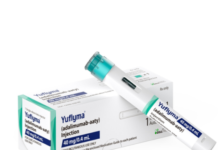New Delhi–To push India into top five pharmaceutical innovation hubs by 2020, the government is preparing for multi-billion dollar investment with 50 per cent public funding through its Public Private Partnership (PPP) model to enhance innovation capability, reveals a study.
“To push the country into top five pharmaceutical innovation hubs by 2020 and establish presence by launching one out of every 5-10 drugs discovered in India at global level, the government has been very active in boosting growth and investment in the industry,” the study stated.
The government is looking at investing billions of dollars in the sector with 50 per cent public funding through its PPP, noted the joint study by industry body Assocham (Associated Chambers of Commerce and Industry of India) and TechSci Research.
Currently, the government allows 100 per cent FDI (Foreign Direct Investment) under automatic route (without prior permission) in the pharmaceuticals sector.
“FDI favourably impacts the Indian pharma industry by providing access to more capital for investing in research and development, which in turn, leads to creation of more IPR (Intellectual Property Rights),” the study titled ‘IPR in pharmaceuticals: Balancing, innovation and access’, said.
For growth of the pharmaceutical industry, there is a weighted tax deduction at a rate of 150 per cent for the research and development expenditure incurred. Government also launched two schemes, including New Millennium Indian Technology Leadership Initiative in 2003 and the Drugs and Pharmaceuticals Research Programme in 1994-95, specially targeted at pharmaceutical research.
The Department of Industrial Policy and Promotion (DIPP) data suggests that the drugs and pharmaceuticals sector in India has attracted FDI worth $1,523 million during April 2014-March 2015.
Additionally, industrial licences are not essential in India for most of the pharmaceutical products. Hence, drug manufacturers are free to develop any drug upon approval by the Drug Control Authority.
The act of protecting one’s innovation through a patent has initiated investments from many multinational pharmaceutical companies (MNCs) in India. These MNCs are looking at India for its strength in contract manufacturing and as an attractive base for research and development (R&D), particularly for conducting clinical trials and other services.
Indian and foreign pharmaceutical companies are progressing with rising patented drug launches in India. The Indian Patent Office granted 2,008 patents between 2010 and 2013






